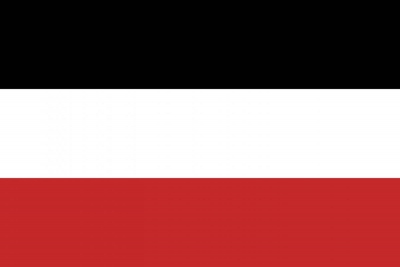Burkina Faso (UK: , US: (listen); French: [bukina faso]) is a landlocked country in West Africa with an area of 274,200 km2 (105,900 sq mi), bordered by Mali to the northwest, Niger to the northeast, Benin to the southeast, Togo and Ghana to the south, and the Ivory Coast to the southwest. It has a population of 20,321,378. Previously called Republic of Upper Volta (19581984), it was renamed Burkina Faso by President Thomas Sankara. Its citizens are known as Burkinab ( bur-KEE-n-beh), and its capital and largest city is Ouagadougou.
The largest ethnic group in Burkina Faso is the Mossi people, who settled the area in the 11th and 13th centuries. They established powerful kingdoms such as the Ouagadougou, Tenkodogo, and Yatenga. In 1896, it was colonized by the French as part of French West Africa; in 1958, Upper Volta became a self-governing colony within the French Community. In 1960, it gained full independence with Maurice Yamogo as President. In its early years, the country was subject to instability, droughts, famines and corruption. Various coups have also taken place in the country, in 1966, 1980, 1982, 1983, 1987, an attempt in 1989, 2015, and 2022. Thomas Sankara served as the country's President from 1982 until he was killed in the 1987 coup led by Blaise Compaor who became president and ruled the country until his removal on 31 October 2014. Sankara launched an ambitious socioeconomic programme which included a nationwide literacy campaign, land redistribution to peasants, railway and road construction, and the outlawing of female genital mutilation, forced marriages, and polygamy.Burkina Faso has been severely affected by the rise of Islamist terror in the Sahel since the mid-2010s. Several militias, partly allied with Islamic State (IS) or al-Qaeda, operate across the borders to Mali and Niger. More than one million of the country's 21 million inhabitants are internally displaced persons. On 24 January 2022, the military and its "Patriotic Movement for Safeguard and Restoration" (MPSR) declared itself to be in power. Previously the military had executed a coup against President Roch Marc Kabor. On 31 January, the military junta restored the constitution and appointed Paul-Henri Sandaogo Damiba as interim president.Burkina Faso is a least developed country with a GDP of $16.226 billion. 63% of its population practices Islam and 22% practice Christianity. Due to French colonialism, the country's official language of government and business is French. There are 60 indigenous languages officially recognized by the Burkinab government, with the most common language, Moor, spoken by over 50% of Burkinab. The country is governed as a semi-presidential republic with executive, legislative and judicial powers. Burkina Faso is a member of the United Nations, La Francophonie and the Organisation of Islamic Cooperation. It is currently suspended from ECOWAS and the African Union.
The Republic of Upper Volta (French: République de Haute-Volta, now Burkina Faso) was a landlocked West African country established on 11 December 1958 as a self-governing colony within the French Community. Before becoming autonomous, it had been part of the French Union as the French Upper Volta. On 5 August 1960, it gained full independence from France. On 4 August 1984, it changed its name to Burkina Faso.

1984Aug, 4
The Republic of Upper Volta changes its name to Burkina Faso.
Choose Another Date
Events on 1984
- 7Jan
Association of Southeast Asian Nations
Brunei becomes the sixth member of the Association of Southeast Asian Nations (ASEAN). - 5Jun
Indira Gandhi
The Prime Minister of India, Indira Gandhi, orders an attack on the Golden Temple, the holiest site of the Sikh religion. - 4Aug
Burkina Faso
The Republic of Upper Volta changes its name to Burkina Faso. - 20Sep
Beirut
A suicide bomber in a car attacks the U.S. embassy in Beirut, Lebanon, killing twenty-two people. - 26Sep
Transfer of sovereignty over Hong Kong
The United Kingdom and China agree to a transfer of sovereignty over Hong Kong, to take place in 1997.

 English
English  español
español  français
français  português
português  русский
русский  العربية
العربية  简体中文
简体中文 